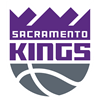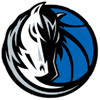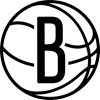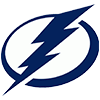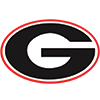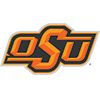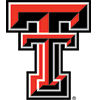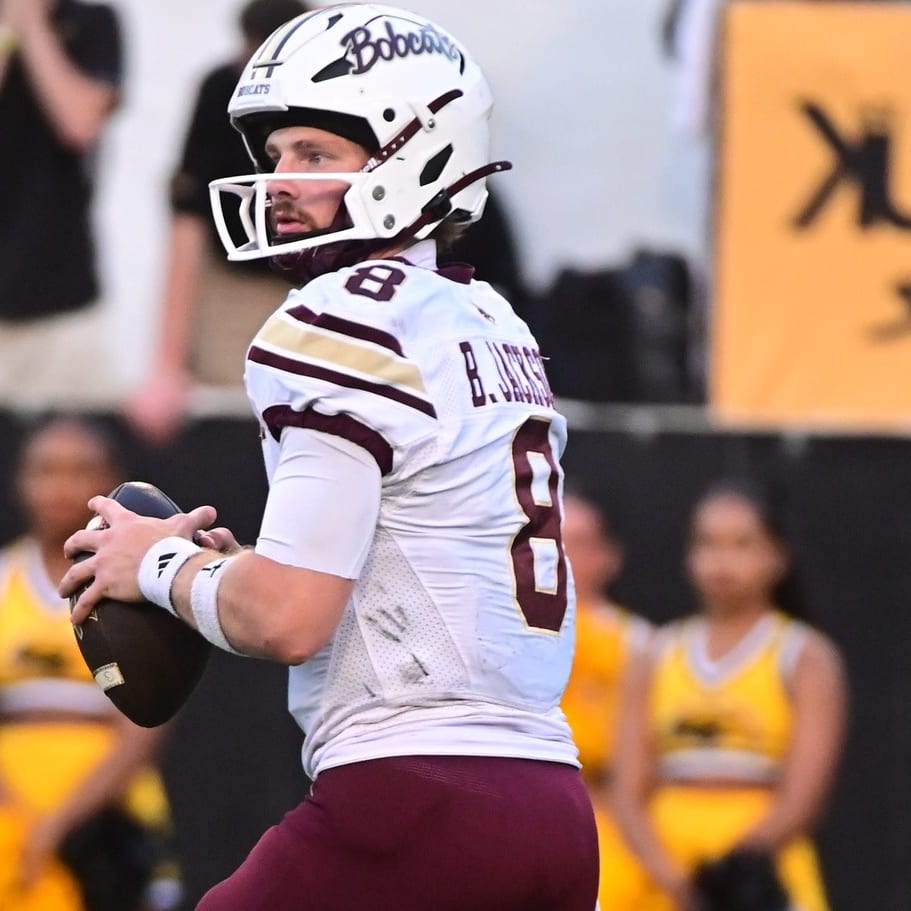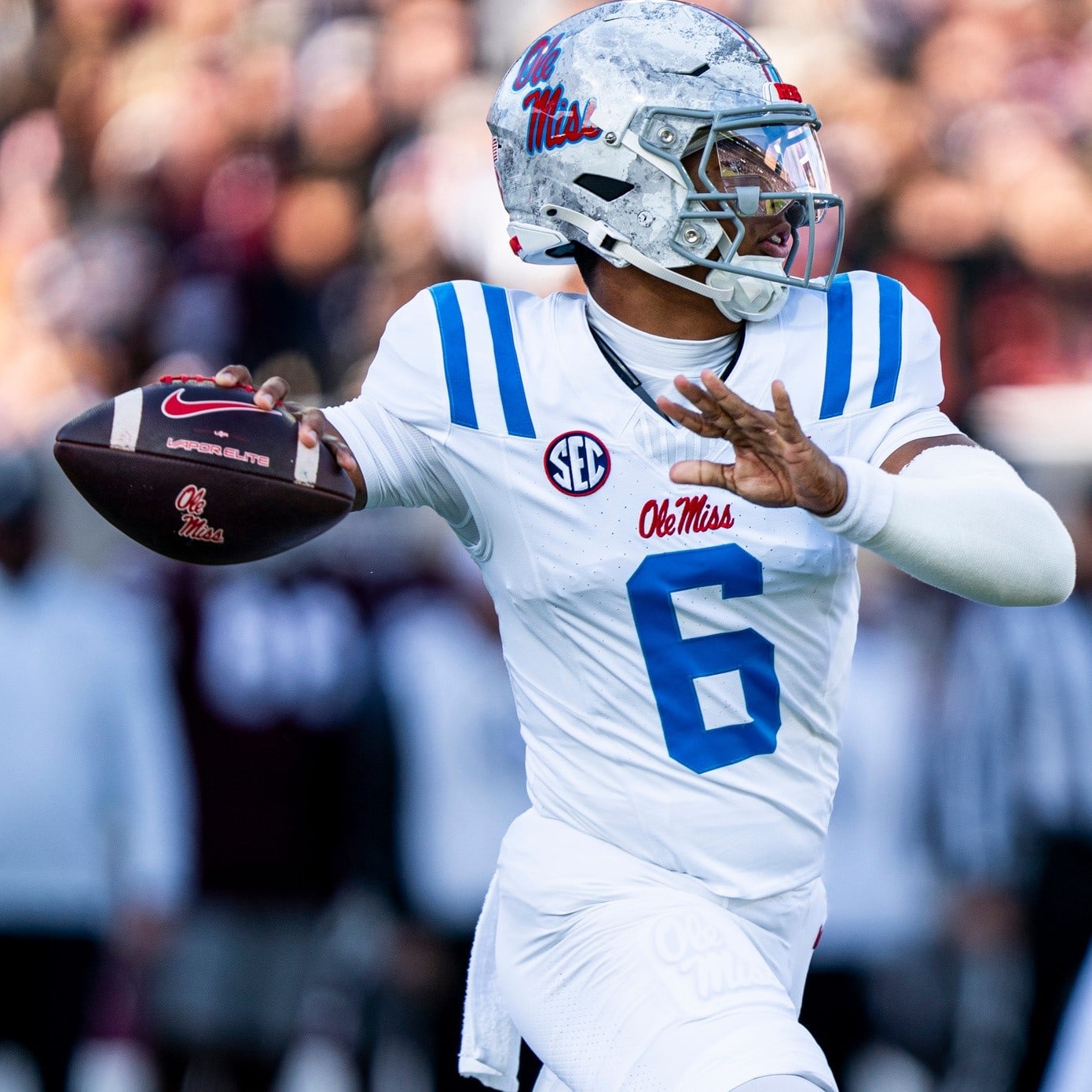Welcome into Part I of my early quarterback rankings for the 2019 season. This particular article will tackle quarterbacks 11-25 with a deep dive into what makes each of them worthy of their respective ranking, along with some reasons for concern or reasons for optimism. The Top Ten will be released next week, and I plan to have similar breakdowns for running backs and receivers as well.
11.) Bryce Perkins, Virginia
Buying Bryce Perkins shares this time last year was mostly a leap of faith, even though there were some signs that there were big things ahead if you squinted hard enough. You won't be able to get him on the cheap this time around after Perkins finished the year as the No.12 QB in fantasy points per game.
Perkins' value starts with his rushing ability; he ran for just under 1,000 yards along with nine touchdowns over 13 games. He's also a gifted passer. Perkins completed 64 percent of his passes with 22 touchdowns and just nine interceptions in the regular season and he torched South Carolina's defense for three touchdowns in Virginia's bowl victory. It's important to contextualize those numbers, too. This was his first season as an FBS starter and he still managed to finish third in the ACC in quarterback rating, ahead of Duke's Daniel Jones and Syracuse's Eric Dungey.
Perkins loses top target Olamide Zaccheaus, whose unique role and heavy target volume (40 percent target share, 136 total targets) will be difficult to
Welcome into Part I of my early quarterback rankings for the 2019 season. This particular article will tackle quarterbacks 11-25 with a deep dive into what makes each of them worthy of their respective ranking, along with some reasons for concern or reasons for optimism. The Top Ten will be released next week, and I plan to have similar breakdowns for running backs and receivers as well.
11.) Bryce Perkins, Virginia
Buying Bryce Perkins shares this time last year was mostly a leap of faith, even though there were some signs that there were big things ahead if you squinted hard enough. You won't be able to get him on the cheap this time around after Perkins finished the year as the No.12 QB in fantasy points per game.
Perkins' value starts with his rushing ability; he ran for just under 1,000 yards along with nine touchdowns over 13 games. He's also a gifted passer. Perkins completed 64 percent of his passes with 22 touchdowns and just nine interceptions in the regular season and he torched South Carolina's defense for three touchdowns in Virginia's bowl victory. It's important to contextualize those numbers, too. This was his first season as an FBS starter and he still managed to finish third in the ACC in quarterback rating, ahead of Duke's Daniel Jones and Syracuse's Eric Dungey.
Perkins loses top target Olamide Zaccheaus, whose unique role and heavy target volume (40 percent target share, 136 total targets) will be difficult to replace. It will be interesting to see whether Perkins' efficiency takes a hit without all the easy completions to Zaccheaus. But it's not like Virginia is hurting for talent. Joe Reed averaged 12.6 YPT to go with a 66 percent catch rate and Hasise Dubois was a reliable target with a 23 percent market share. Perkins will also have the benefit of a soft schedule with little to worry about both outside and inside the conference.
12.) Gage Gubrud, Washington State
Let me start by taking the L for being a Gardner Minshew doubter until, like, October. Minshew, the guy that got benched at East Carolina, is proof positive that you don't have to be a special talent to run the Mike Leach offense and have immense success. In fact, it's not like Luke Falk or Connor Halladay were special talents, either.
So, who is Gage Gubrud? He's a grad transfer out of Eastern Washington, which is always one of the premier programs in the FCS. And he's pretty darn good by all accounts. During his 2016 season, he threw for an FCS single-season record 5,160 yards along with 48 touchdowns. He appeared in just five games last season due to injury and was able to earn an extra year of eligibility, which he'll spend at Washington State.
He'll have to beat out Trey Tinsley and Anthony Gordon, who are more experienced in the system, but Minshew faced similar hurdles when he arrived on campus last summer. My point here is getting the Washington State quarterback, whoever it ends up being, will not burn you. So, assuming Gubrud wins the job, you'll be able to pencil him in for high volume passing numbers every week that should turn into 4,000-plus yards and 30-plus passing touchdowns over the course of the season.
13.) Tua Tagovailoa, Alabama
For as dominant as the Tide has been for a decade, no one has led its offense to greater heights than Tagovailoa did in 2018. In the regular season alone, Tagovailoa threw 36 touchdowns...on 269 passes. That comes out to Tua throwing a touchdown on 13 percent of his passes. Accounting for the full season, Tagovailoa only attempted 17 passes in the fourth quarter of his 15 games. And yet he still managed a top-10 finish in fantasy points among quarterbacks.
The question lies in whether there's another level. Realistically, how much better can he get in terms of efficiency? A YPA north of 11, a completion rate hovering around 70 percent, and the aforementioned touchdown rate are already more than you can ask for from any quarterback.
Is a volume increase possible? Sure, but do you really expect the Alabama offense to be worse this year when Jerry Jeudy, Henry Ruggs III, and DeVonta Smith all coming into their junior seasons? Oh and there's Jaylen Waddle, too. To assume a major volume increase from Tagovailoa in passing attempts, touchdowns, etc. would be to expect that either A.) Alabama plays significantly more close games despite having as good of an offense as it did in 2018 or B.) that Alabama really will go full scorched earth on every team it plays this season. It'd be fun to see Tua chucking it 40 times a game to those lethal receivers, but Alabama doesn't need style points like that.
In all, I expect Tagovailoa to have a similar season to his 2018 campaign, which is great. I'm just wary enough of the factors mentioned above to think his numbers drastically improve.
14.) Khalil Tate, Arizona
People may still have a bad taste in their mouths when it comes to Tate after the presumptive QB1 underperformed expectations and became arguably the biggest first-round bust of 2018.
But, like I mentioned above, much of his struggles can be explained away -- new system, gimpy ankle, shaky supporting cast -- and his strong performance down the stretch should alleviate some doubt heading into this season. This will be Tate's second season under Kevin Sumlin, albeit with a very different looking cast of characters around him. Leading receivers Shawn Poindexter, Shun Brown, and Tony Ellison are all gone and none of the returning receivers had more than 18 catches last season.
Even with improved passing projections baked in, Tate's rushing will make or break him as a must-start fantasy asset. The near-1,200-yard drop-off in rushing along with 10 fewer rushing touchdowns was a brutal turn for anyone who burned a first-rounder on Tate. It's clear that the Khalil Tate that ripped off 9.2 yards per rush doesn't exist in 2019, but how can a coaching staff try to minimize the attribute that made Arizona's offense so dangerous? I'm betting on some sort of middle ground being found here where Sumlin's system can continue to help develop Tate as a passer while not restricting what he does as a runner. Of course, a healthy ankle will also help boost Tate's rushing numbers as well. I'm willing to give Tate the benefit of the doubt for his rough start to 2018 and bet on a bounceback campaign for the senior quarterback.
15.) Keytaon Thompson, Mississippi State
Is he raw as a passer? Yes. But it's not like Nick Fitzgerald was Peyton Manning back there and he still managed to be an elite fantasy producer for three solid seasons. Now the torch is ready to be passed onto Thompson.
It's easy to downplay Thompson's outrageous season opener last year (473 total yards, seven touchdowns) because it came against Stephen F. Austin. But his massive outings against Ole Miss and Louisville (when it was somewhat respectable) as a freshman in 2017 show that Thompson can be a force regardless of who's lining up against him.
Of course there's a bit of a leap of faith required to take Thompson as your QB1 when he's this raw as a passer on paper. But to believe he can't improve, especially with a full offseason working as the starter in Joe Moorhead's offense, would be misguided. Tack on Thompson's devastating rushing ability and we have a player who could push for 30-plus total touchdowns with at least one-third of those coming on the ground.
16.) Zac Thomas, Appalachian State
Thomas was one of 16 quarterbacks to rush for double-digit touchdowns in 2018, and rushing ability isn't all he has to offer. He completed 62 percent of his passes with an 8.0 YPA while developing a rapport with then-sophomores Corey Sutton and Thomas Hennigan. Thomas was also able to avoid mistakes for the most part with four interceptions and seven total turnovers.
He'll enter his second season as the starter in 2019, and though he'll have a new coach and a new system in place, Thomas has the talent and supporting cast to make strides this season. Sutton and Hennigan, along with Malik Williams comprise a battle-tested and talented receiving corps that should face little resistance in the Sun Belt. With coach Eli Drinkwitz calling the shots, we'll see Thomas put in position to succeed in this quarterback-friendly system that served Ryan Finley well at NC State over the last three years. The arrow is pointing up for Thomas.
17.) J.T. Daniels, USC
Full disclosure: I have my doubts about Daniels. The arm can lag and his poise in the pocket was shaky at times last year. The poise issue can be forgiven to an extent as he was a true freshman who reclassified from the Class of 2019 to the Class of 2018. However,
the concerns I have about Daniels are outweighed (for the most part) by the team context.
First of all, the collection of talent around Daniels at the skill spots is borderline ridiculous. All three of USC's leading receivers from a year ago -- Tyler Vaughns, Michael Pittman Jr., and Amon-Ra St. Brown -- are all back and all three are candidates to lead the conference in receiving. Vaughns and Pittman are classic downfield receivers and St. Brown, though undersized, can do it all and has plenty of experience with Daniels dating back to high school.
Secondly, the offense is going to be better designed this year. Tee Martin's offense is out and Graham Harrell is bringing his system to LA. Harrell, a former Texas Tech quarterback, was a huge reason behind North Texas' offensive renaissance over the last three seasons. With Mason Fine at quarterback, Harrell's North Texas offense ranked 12th in passing yards per game in 2018 and 21st in 2017. To get that level of production with Conference-USA talent is impressive. And it's reason to buy into Harrell helping take this massively talented offense to another level in 2019. Daniels should benefit in a huge way and turn in a strong season in terms of fantasy production.
18.) Mason Fine, North Texas
As you can probably tell, I think the Graham Harrell loss is a fairly big blow for North Texas. However, it's not like Harrell was a known commodity in the coaching community when he was brought onto UNT's staff. So, if anything, we should have some faith in coach Seth Littrell's ability to identify up-and-coming coaching talent. The new OC hire, Bodie Reeder, seems to fit that bill after coordinating an explosive offense at Eastern Washington.
All of this is to say I don't worry about a dropoff from Fine the way I do from other Group of 5 guys who are learning new systems. Fine is coming off a huge year, throwing for 3,793 yards and 27 touchdowns and he trimmed his picks from 15 to five on 42 less attempts. He'll have some returning star power, too. Rico Bussey, who caught 12 touchdowns in 2018, is back, and promising runner DeAndrey Torrey will keep defenses honest in the run game. North Texas quietly has a collection of weapons that should produce another Top-20 scoring unit with Fine at the helm.
19.) Trevor Lawrence, Clemson
If you weren't familiar with Lawrence as the super-recruit coming out of high school this time last year, you certainly are now. His utter dismantling of Alabama in the title game was years in the making and now he has established himself as the top NFL quarterback prospect since Andrew Luck. So, the talent is there and I don't need to sell you on it further.
His supporting cast is also outrageous. Fellow sophomore Justyn Ross looks like he's on a Julio Jones trajectory while Tee Higgins and Amari Rodgers would easily be WR1 on most other teams. Lawrence also plays in a well-designed offense orchestrated by some brilliant offensive minds.
The only limiting factor for Lawrence is the same one that dings Alabama's Tua Tagovailoa: volume. Lawrence and company aren't going to face much resistance during the regular season outside of a home game against Texas A&M, so Clemson isn't going to need to air it out much more than 30 times per game. Of course, Lawrence can do a ton with those attempts, but the fact remains that there will be weeks where he won't play a snap after the halfway point of the third quarter. Drafting Lawrence won't burn you, but you have to understand the limitations that come with drafting a player that won't be playing fourth quarter snaps week in and week out.
20.) Armani Rogers, UNLV
A toe injury derailed what could've been an excellent season from Rogers, who averaged 29.1 fantasy points per game in his six contests. On a per-game basis, Rogers was more prolific than Nick Fitzgerald and even Tua Tagovailoa. Of course, a full season could've deflated Rogers' efficiency, but you see what I mean -- Rogers is a legitimate fantasy asset when healthy.
At 6-foot-5 and 225 pounds with a strong arm, Rogers is a problem for opposing defenses. He averaged over 6.0 yards per carry in 2018 and posted eight rushing scores in those six games. There's room for improvement as a passer as his accuracy dropped down to just 44.4 percent in 2018, although there were some signs of life late in the season with his 13-for-20 showing with three passing touchdowns against Nevada. It's one game, sure, but anything that points to Rogers developing into a competent passer is encouraging when you know you're getting elite rushing production to go along with it.
21.) Justin Herbert, Oregon
At this stage we have a fairly good idea of what we're getting from Herbert. He's a strong-armed, athletic quarterback who can hurt defenses in a variety of ways and he's experienced. This will be his fourth season as the starter and his third running Marcus Arroyo's offense.
Herbert loses his top receiver in Dillon Mitchell, who leaves a massive target share of 32 percent up for grabs. It'll take more than one guy to replace what Mitchell brought to the table, but with the way Oregon has recruited under coach Mario Cristobal, there's reason to trust that it can be done. Redshirt freshman Bryan Addison is a big target at 6-foot-5 who was a blue chip recruit coming out of high school. Incoming freshman Mycah Pittman projects to be a Day 1 starter in the slot and there's also reliable target Jaylon Redd in the mix.
Circling back to the recruiting angle, an unsung factor that could help Herbert is the offensive line. Cristobal has brought in and developed a unit that should maul PAC-12 fronts and keep Herbert upright. Herbert with time to throw in a clean pocket is a scary proposition for opposing defenses and is another reason to believe he can reach another level in 2019.
22.) Desmond Ridder, Cincinnati
A complete out-of-nowhere player, Ridder burst onto the scene and led the Bearcats to an 11-win season in 2018. Ridder was just a freshman, but he was a driving force behind that success. He completed 62.4 percent of his passes with 20 touchdowns against just five picks and he added 572 yards and five scores on the ground, earning AAC Rookie of the Year honors in the process.
Year 2 looks promising for Ridder in an offense that returns 71 percent of its production (T-41st), including star running back Michael Warren II. I look for Ridder to improve as a passer while still being a force on the ground, making him a strong QB2 that has potential to move up into the top-15 range when the season's over.
23.) Caleb Evans, Louisiana-Monroe
There's some concern with Evans' supporting cast with so much roster attrition from the 2018 Warhawks, but there's also enough to Evans' game to overcome it. Evans is one of the Group of Five's most talented quarterbacks and is entering his third season as the starter at ULM. He has at least 25 total touchdowns and at least 10 rushing scores in each of the last two seasons. In Evans, you're getting an experienced, athletic, and efficient quarterback who gets to beat up on Sun Belt competition more often than not. Evans isn't someone you're over the moon to have on your roster, but if your QB1 is on bye or gets injured, you'll be glad you have him.
24.) Jordan Love, Utah State
Love makes the cut here but I have my concerns. He's coming off a breakout season in which he threw for 32 touchdowns and ran for another seven while adding 3,567 yards through the air on a 64 percent completion rate. I'm not saying that Love was solely dependent on his supporting cast for those numbers. I am saying that the five leading receivers on Utah State's 2018 roster (63 percent target share, 70 percent receiving yardage share) are gone, and that's significant.
We also have the issue of Coach Matt Wells and the offensive staff being hired away by Texas Tech. Wells helped orchestrate the Love-led offense that ranked second in the nation in points per game (47.5) behind only Oklahoma. The replacement? Gary Andersen and Mike Sanford. I believe in Love's talent and his ability to get the most out of the players around him. There are just a lot of factors working against him this time around and repeating last year's success will be a tall order.
25.) Steven Montez, Colorado
Last season was a bit of a disappointment from Montez based on preseason expectations. He regressed in nearly every major category and the improvements he made were modest at best (added one passing and one rushing touchdown to his 2017 totals).
He will be learning a new system under a new staff with Mel Tucker taking over head coaching duties and installing Jay Johnson at OC. Colorado has some question marks at some skill positions, too, particularly at running back. Still, this is a third-year starter playing in a mediocre PAC-12 South that has Laviska Shenault at his disposal. Those factors alone are worth a gamble. I'm buying Montez as a bit of a post-hype sleeper that will be a starter in two-quarterback leagues. He's got the athleticism and arm to be a solid dual-threat guy and having Shenault as his security blanket is as good as it gets.













